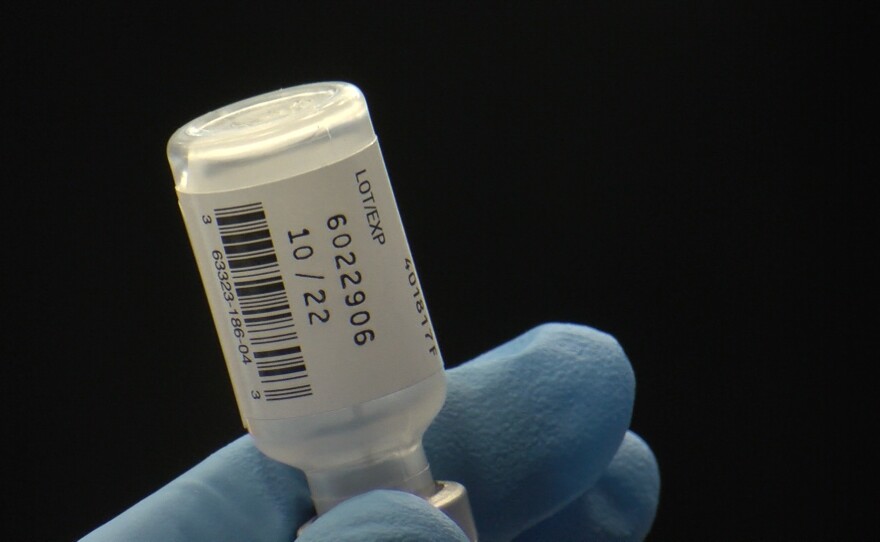There’s been so much good news surrounding COVID lately in San Diego County. We're coming close to the goal of getting 75% of people here vaccinated and we've advanced to the yellow, least restrictive tier.
But now comes news from the county that a 70-year-old woman, who the county said had many underlying health conditions, died of the virus despite being vaccinated.
Dr. Christian Ramers, an infectious disease specialist with Family Health Centers of San Diego, said, “You have to acknowledge that it’s true. It did happen. This is what we call a breakthrough case.”
RELATED: Coronavirus FAQ: You’re Vaccinated. Cool! Now About Those ‘Breakthrough’ Infections…
A breakthrough case; a situation where, even with the vaccine, the virus overcomes the body’s ability to fight it off. But to say these cases are exceedingly rare is a big understatement.
"In the CDC’s tracking database, 3,000 cases of breakthrough cases out of 135-million people vaccinated. So that’s a 0.002% rate of hospitalization and a 0.0004% risk of death," Ramers said.
In other words, for people still hesitant to get the vaccine, this one breakthrough case is not a reason not to get vaccinated.
“Scientifically and medically it is the best tool that we have by far at getting people protected. We’re seeing these incredible falling numbers. It’s really because of those that have been vaccinated," said Ramers.
RELATED: How Does COVID-19 Vaccine Impact Reproductive Health?
Plus, being vaccinated means the ability to return to doing lots of things without having to wear a mask.
And Ramers said for those still unvaccinated, there’s something else to consider.
“You will be increasingly asked, maybe it’s by your employer, by an airline, by a concert venue to prove that you’re vaccinated. We do this already for so many other diseases," he said.
The bottom line is that even with the tragic breakthrough case, there’s no reason not to get vaccinated and every reason to get the shot — to help society as a whole move back to where we were before any of us had ever heard of COVID-19.






